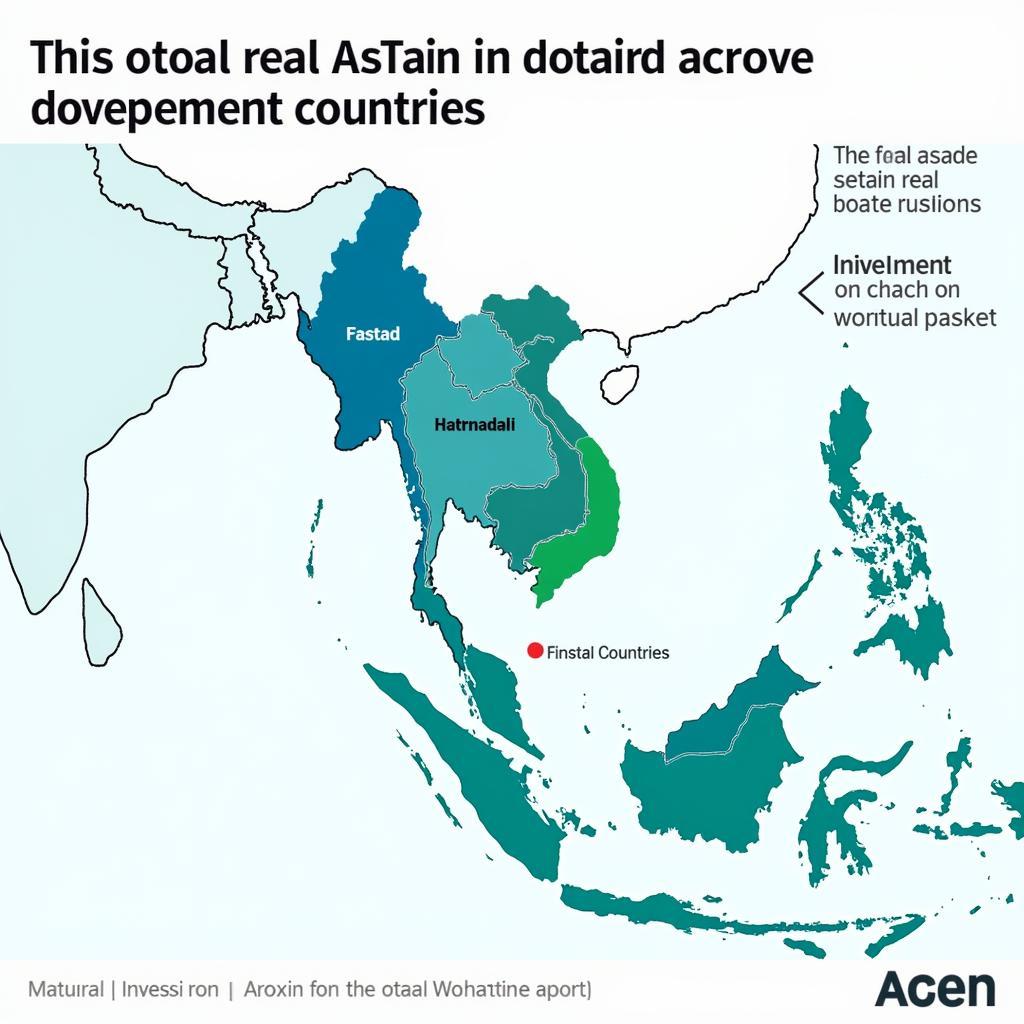The term “ASEAN science assessment” might seem like a mouthful at first, but it represents a critical aspect of education and development within the diverse Southeast Asian region. This article delves into the intricacies of science assessment in ASEAN, exploring its objectives, methodologies, and impact on the future generation of scientific minds.
Unpacking the Importance of ASEAN Science Assessment
Science education plays a pivotal role in equipping students with critical thinking skills, problem-solving abilities, and a deeper understanding of the world around them. In the context of ASEAN, science assessment goes beyond mere grades; it serves as a tool to gauge the effectiveness of educational systems, identify areas for improvement, and foster a culture of scientific inquiry across the region.
Key Objectives of Science Assessment in ASEAN
The primary goals of ASEAN science assessment can be summarized as follows:
- Evaluating Learning Outcomes: Assessing how effectively students grasp scientific concepts, principles, and methodologies.
- Monitoring Educational Progress: Tracking the progress of science education initiatives across ASEAN member states.
- Informing Policy Decisions: Providing evidence-based insights to shape education policies and improve learning outcomes.
- Promoting Regional Cooperation: Fostering collaboration and exchange of best practices in science education among ASEAN countries.
Methodologies Employed in ASEAN Science Assessment
ASEAN nations adopt a multi-faceted approach to science assessment, employing a range of methodologies to gain a comprehensive understanding of student performance and educational effectiveness:
- Large-Scale International Assessments: Participating in renowned international assessments like TIMSS (Trends in International Mathematics and Science Study) and PISA (Programme for International Student Assessment) to benchmark student performance against global standards. ase mr pisa
- National-Level Examinations: Conducting standardized tests at the national level to evaluate student learning outcomes within each ASEAN member state.
- Classroom-Based Assessments: Implementing regular assessments within classroom settings to monitor student progress, identify learning gaps, and tailor instruction accordingly.
Addressing Challenges and Embracing Opportunities
While ASEAN science assessment strives to elevate the region’s scientific landscape, it faces certain challenges:
- Disparities in Educational Resources: Uneven distribution of resources and infrastructure across ASEAN nations can lead to variations in assessment quality and outcomes.
- Language Barriers: The linguistic diversity within ASEAN can pose challenges in designing and administering assessments fairly.
- Cultural Contextualization: Ensuring assessments are culturally relevant and accessible to students from diverse backgrounds is crucial.
ASEAN & EU SHARE Scholarship 2017: A Catalyst for Progress
Initiatives like the ASEAN & EU SHARE scholarship 2017 exemplify the region’s commitment to enhancing science education. This program fostered academic mobility and knowledge exchange between ASEAN and European universities, contributing to the advancement of scientific research and pedagogy within ASEAN.
Looking Ahead: The Future of ASEAN Science Assessment
Moving forward, ASEAN science assessment needs to adapt to the evolving landscape of education and the demands of the 21st century:
- Integrating 21st Century Skills: Assessing not just scientific knowledge but also critical thinking, collaboration, communication, and problem-solving abilities.
- Leveraging Technology: Embracing digital tools and platforms to enhance assessment design, delivery, and analysis.
- Promoting Inquiry-Based Learning: Emphasizing assessments that encourage students to ask questions, design experiments, and analyze data.
Conclusion: Shaping a Brighter Future Through Science Education
ASEAN science assessment plays a vital role in shaping the future of the region by fostering a generation equipped to tackle scientific challenges and contribute to global advancements. By continuously evolving assessment methodologies, addressing existing disparities, and fostering regional collaboration, ASEAN can pave the way for a scientifically empowered and innovative future. For any assistance or inquiries, feel free to contact us at Phone Number: 0369020373, Email: [email protected] or visit us at Thôn Ngọc Liễn, Hiệp Hòa, Bắc Giang, Việt Nam. Our dedicated customer service team is available 24/7.

